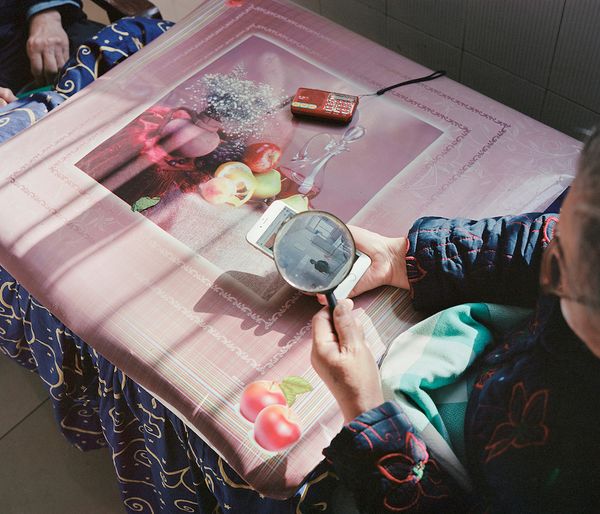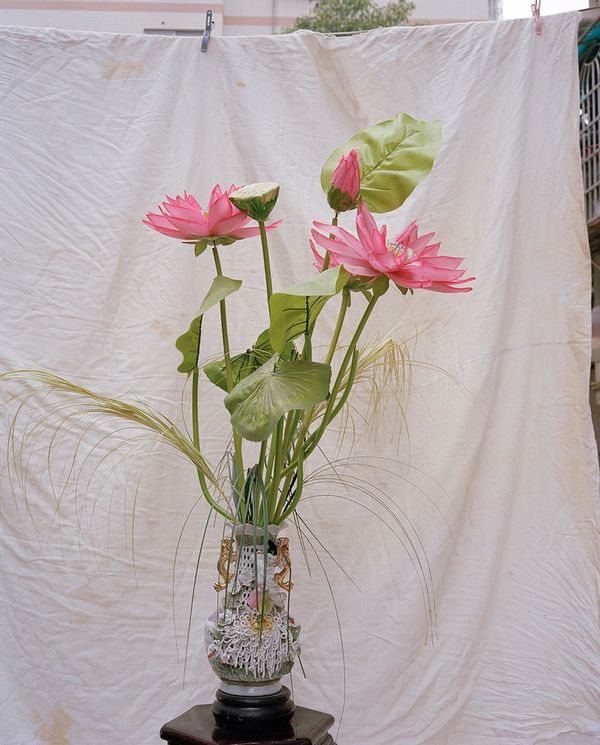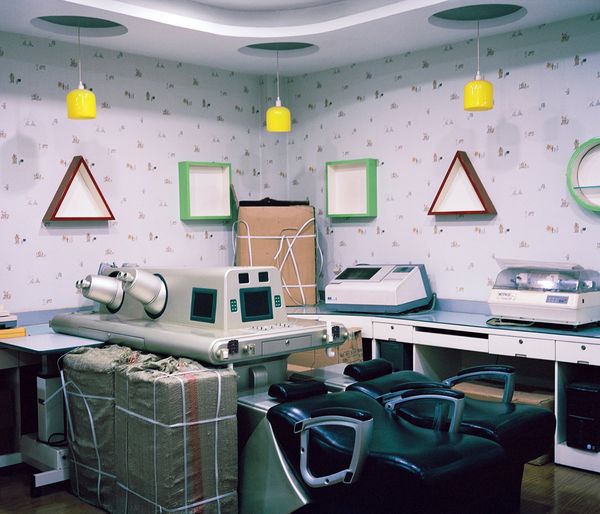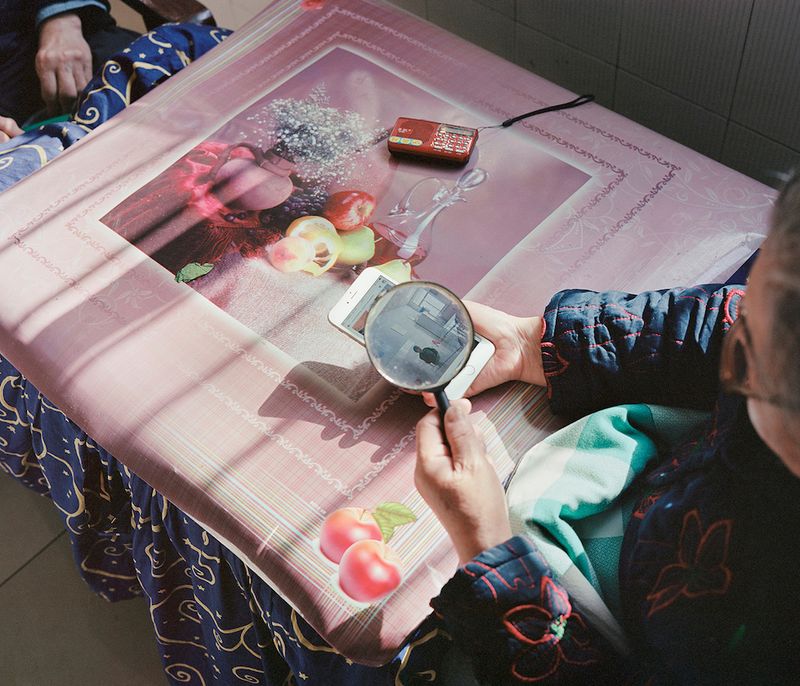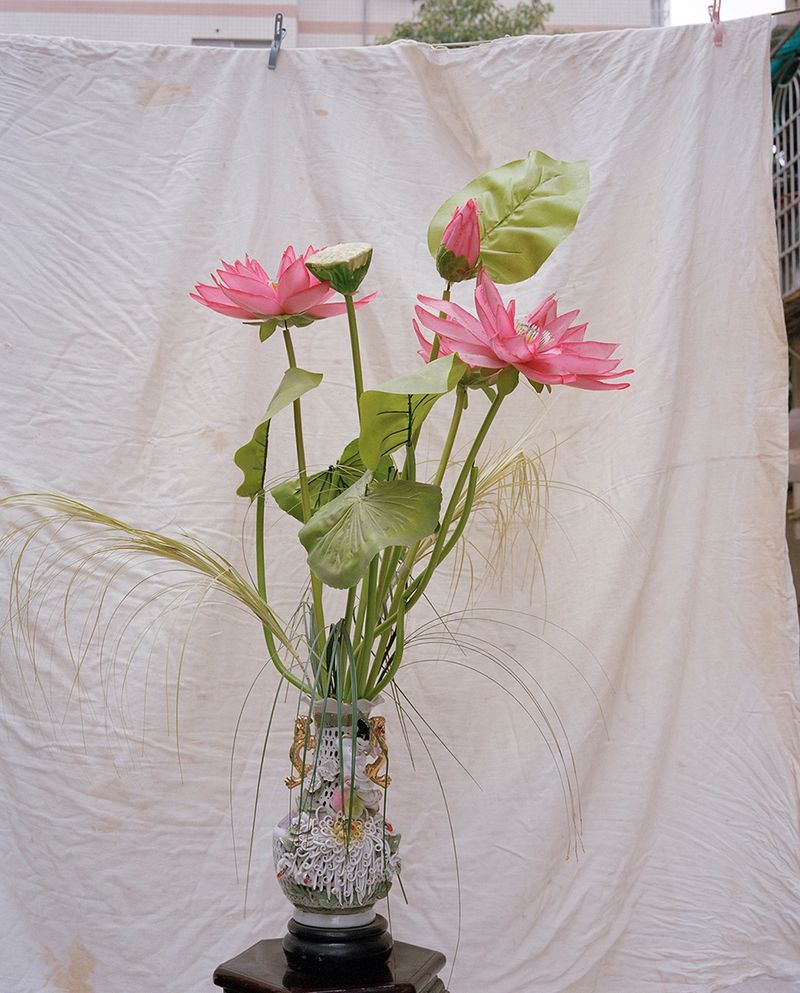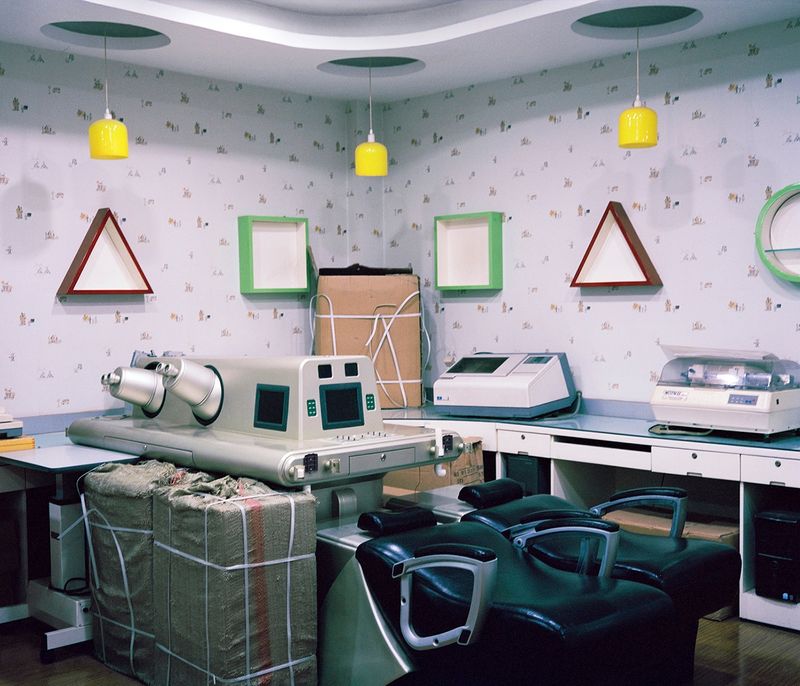Photographing China, between the Old and the New
-
Published28 Dec 2016
-
Author
After moving to the United States, Chinese photographer Ke Peng returned to her homeland to capture how the human experience there has become marked by perpetual movement and rapid change.
After moving to the United States, Chinese photographer Ke Peng returned to her homeland to capture how the human experience there has become marked by perpetual movement and rapid change.
© Ke Peng, from the series Primal Planet
Ke Peng was born in Shenzhen, China, "a city as young as me", she points out, whose population "grew from 30,000 to 15,000,000 in the span of thirty years", she adds. Curious about how such a radical, rapid change is affecting people in both cultural and individual ways, Peng started to capture scenes that distill a certain sense of disconnection. Typically, one of her photographs represents an old lady looking at a photo on a phone screen through an old style magnifying glass. The anachronism of such an unexpected juxtaposition of tools makes for a perfect metaphor for the quick growth that she is trying to portray.
She started her series, Primal Planet after she left home to study in the United States. "Being away in a totally different world where people do things the opposite way offered me the freedom to look closely at where I came from", she admits. Being an insider, her tone varies from humour to cynicism, and the apparatus ranges from the use of obvious symbols to subtle references, and from spontaneity to staging.
Approached as a studio portrait, with a white sheet hung as a background, a photograph of a lotus flower bouquet is emblematic of the series. Majestic in a traditional ceramic vase, the flowers not only appear at second glance to be in plastic, but one of them is cut - back to symbolism, it’s the evocation of an aborted rebirth.
"My photographs inevitably deal with stereotypical symbols of China", she comments. "I've been trying to portray them in alternative ways. For example the lit castle, which is a singing toy car for children to ride on. It is cheaply made, but also mysterious, naive and beautiful in its own strange way."
It’s as if the country was going through a complicated surgery whose outcome is unsure; ambiguous. And the series happens to include a strange surgery room - one whose walls are covered with wallpaper suited for a child’s bedroom and playful, empty shelves of various shapes and colours. There are wrapped up boxes here and there, and unidentified medical machines. In the centre stands an operation bed meant for twins - there are two horizontal seats, two microscope binoculars, and two screens. The quasi sci-fi scene lets the viewer imagine a world growing so rapidly that even the most precise, intimate situations would be optimised to deal with more than one person at a time. There is something both comforting and unsettling about it.
--------------
Ke Peng is a Chinese photographer living and working between Los Angeles and southern China. Her work explores how human experiences are distinct yet connected. Follow her on PHmuseum and Instagram.
Laurence Cornet is a writer and curator based in Brooklyn focusing on cultural and environmental issues.
